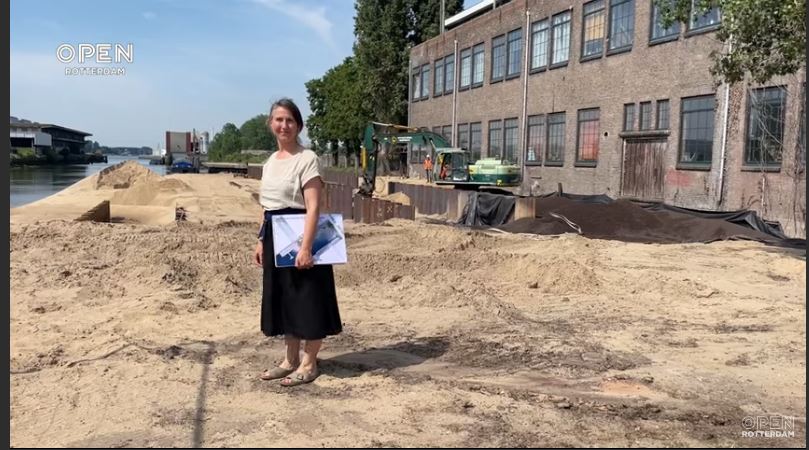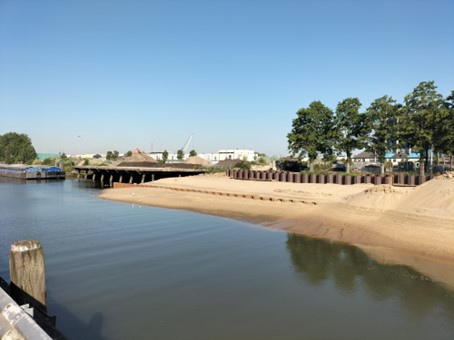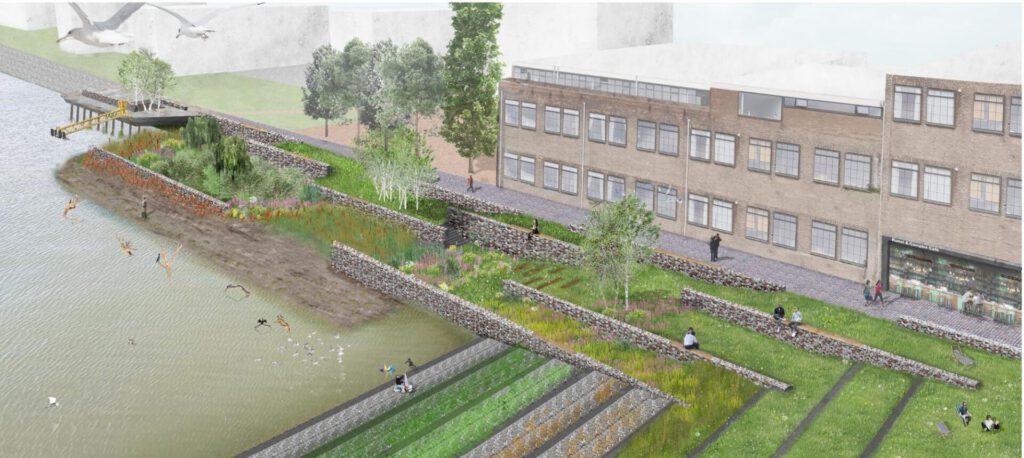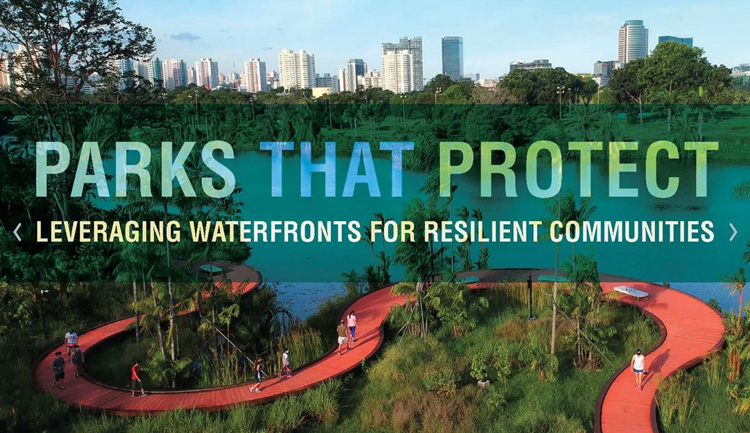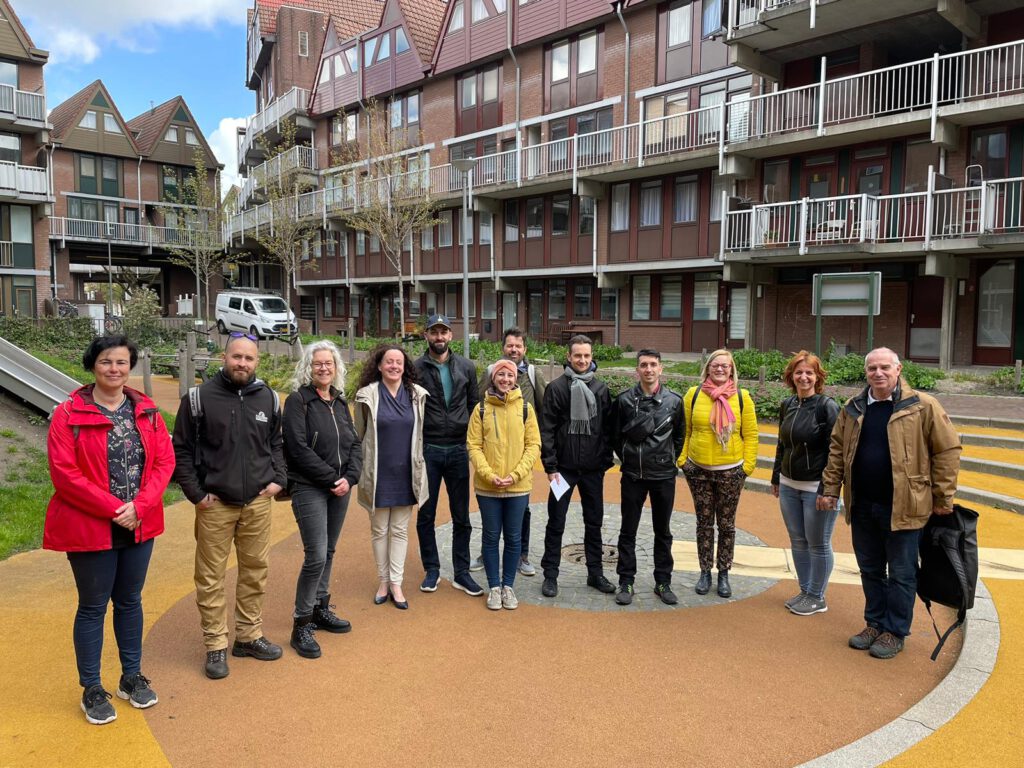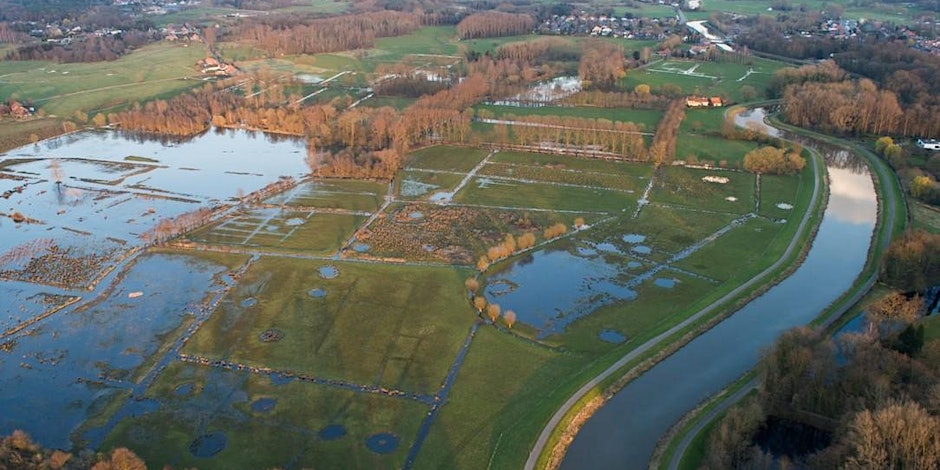These are the challenges LIFE Urban Adapt is tackling:
- The increased risk of flooding due to more intensive rainfall and rising sea levels
- Higher temperatures caused by the 'urban heat island' effect (UHI), the phenomenon whereby the temperature in our urban area is higher on average than in the surrounding rural area. The principal causes of UHI are the absorption of sunlight by dark materials and relatively low wind speeds in the city. Problems during heatwaves, such as heat stress are exacerbated by UHI, which can be reduced by construction measures and increasing the green areas in the city.
- Damage to flora and fauna on land and in water.
The effects of climate change are visible in the city. Large puddles of rainwater do not drain away in the streets and gardens and cellars are flooded. In some houses the dirty water comes back up the drain.
In the Zomerhof (ZoHo) district and the adjacent Agniesebuurt, LIFE Urban Adapt is focusing on more greenery, water collection and water infiltration. We want to retain rainwater for longer and allow it to gradually drain in order to prevent the sewer flooding. Retaining the rainwater in tiles and barrels allows us to excess the water to be used at a later date for example to spray green areas.
Residents of Agniesebuurt, together with Havensteder housing cooperative, the Municipality of Rotterdam and the water board of Schiedam and Krimpenerwaard (HHSK) have discussed a plan for the outdoor space in the Agniesebuurt. This is a joint endeavour, which means the plans take everyone's interests into account.
In the Rotterdam region just 30 percent of riverbanks provide space for nature. The remainder, almost 250 kilometres of inner city riverbanks, consists of stone and urban development. Our aim is to partially replace these concrete river boundaries with 'soft' riverbanks that benefit flora and fauna.
In the Nieuwe Maas, several tidal parks are being created that will help improve local ecosystems and biodiversity. In Nassauhaven, surveys of the existing flora and fauna have been completed and the first preparations are underway for the green riverbanks.

